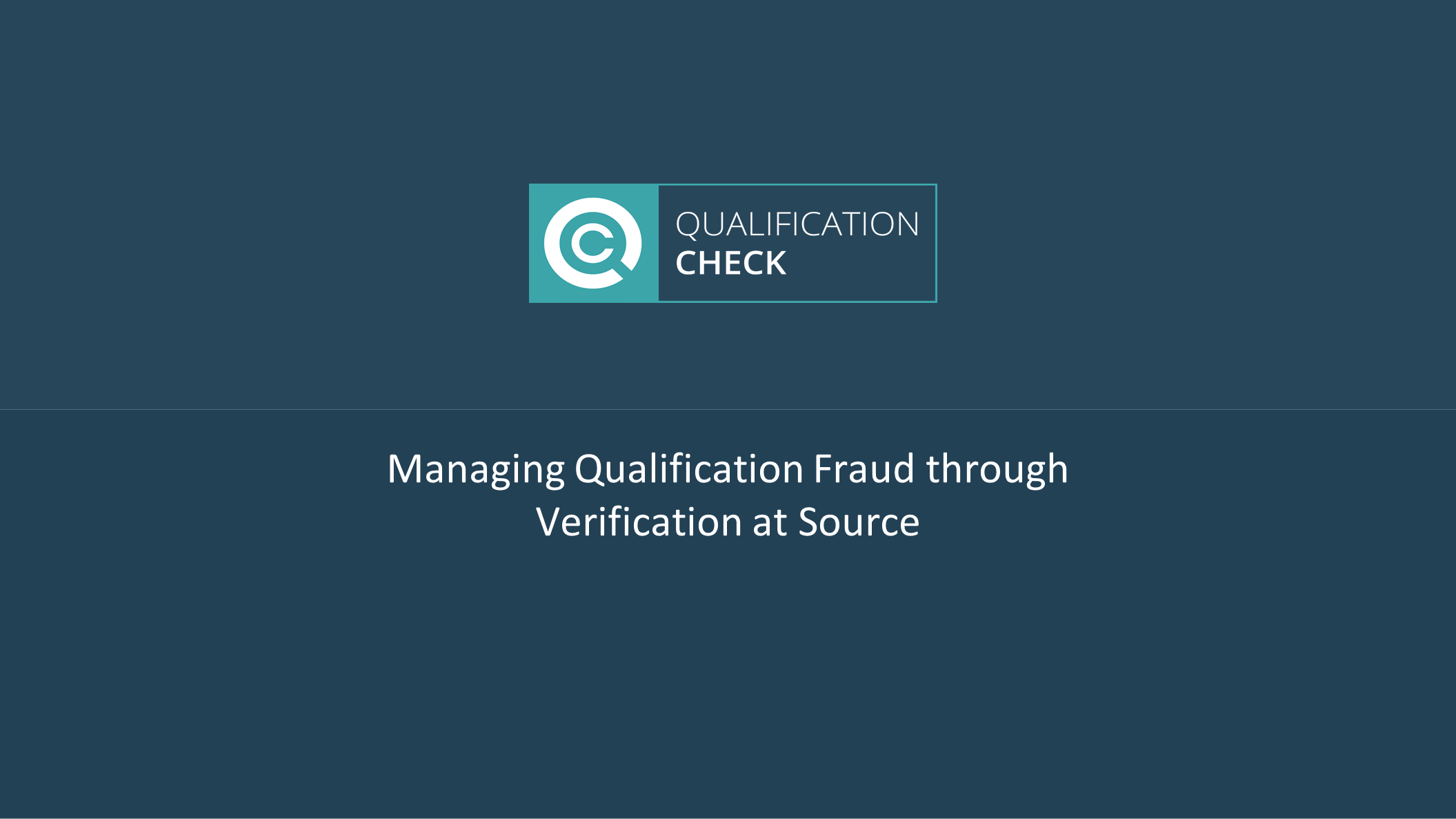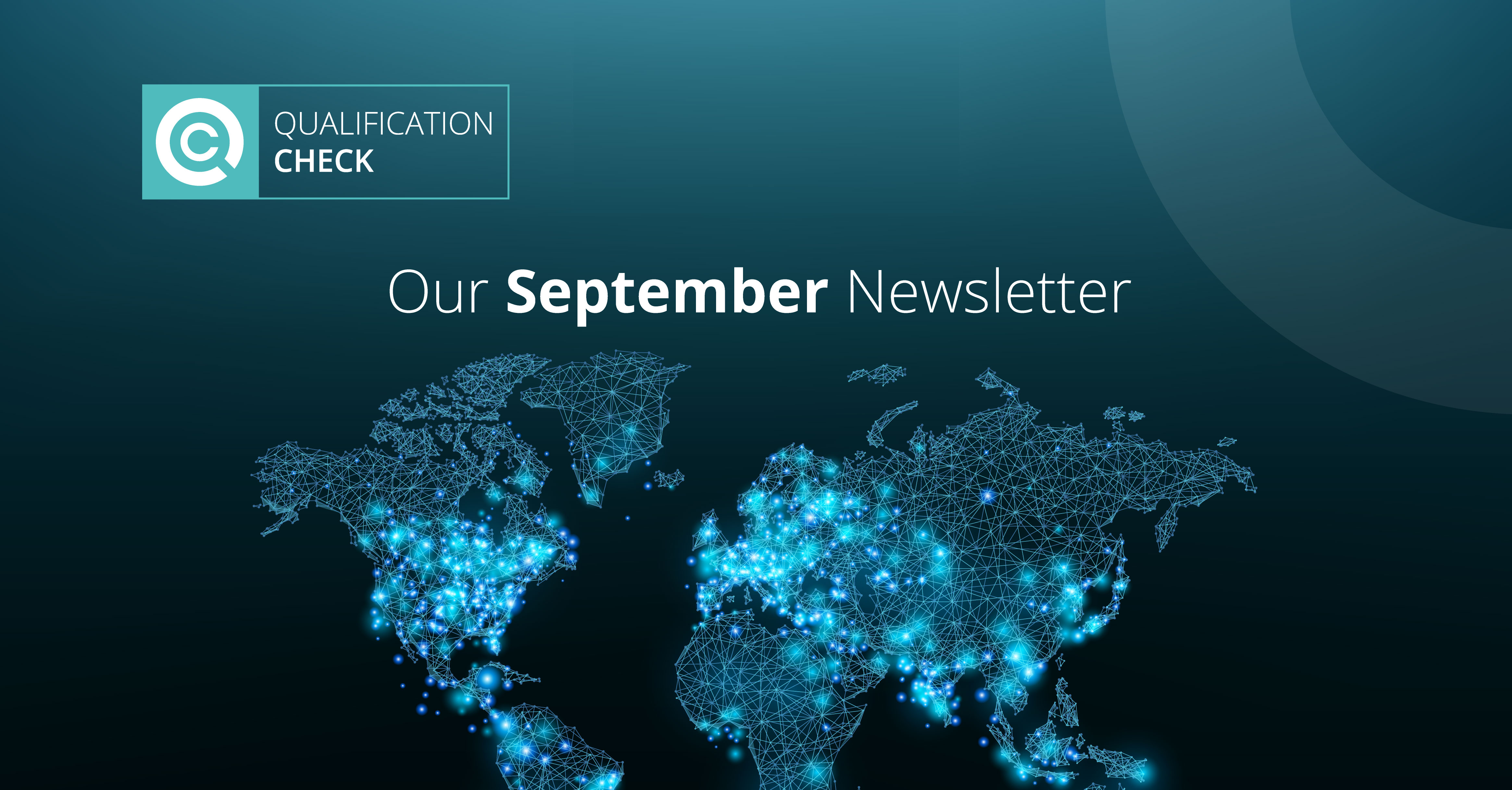
Beating Academic Qualification Fraud through verification at source
As the global market for education changes, and student recruitment and application processes adapt, security has become a real concern for universities and employers. Universities, governments and commercial organisations must be confident about who they accept as candidates, and verification at source is the best way to do that.
The need for verification
Hundreds of thousands of candidates apply for jobs or university places every year, with fabricated qualifications and falsified education histories. Some candidates may have been misled into believing their qualifications are legitimate because unaccredited universities and colleges can operate in so sophisticated a way, that they appear genuine, duping the students who enrol with them. Who is to blame is less important – what matters is that an organisation has a strong verification procedure in place to identify such issues during the applications process.
“Eighty-five fake UK university websites were shut down between 2016 and 2021, as part of a British government crackdown on degree fraud”. Jisc 2021
Fraudulent certificates are also sold for commercial gain, issued by companies known as diploma mills, with no pretence of legitimacy.
“More than 50,000 PhDs are purchased from diploma mills every year” – The New York Times, 2015
Yet a recent poll of university admissions teams by ECCTIS (formerly UK Naric) found that only 25% of respondents felt confident they could spot fake qualification documents without outside assistance, and 14% said they don't verify overseas qualification documents at all.
“Only 25% of respondents felt confident they could spot fake qualification documents without outside assistance” – UK NARIC admissions poll, 2021
Global coverage
Verifying overseas students’ qualifications has become a major undertaking but it shouldn’t be a major hurdle. Indeed, verification should be seen as beneficial to the application process. It is a valuable tool, enabling organisations to assess the suitability of any applicant, gaining insight into their integrity before accepting them.
True verification resolves any questions by validating qualification records at source but to do this, verification software and service providers must have global coverage in order to meet the demands of an increasingly international market. It should not matter from which institution your applicant claims to have graduated, you should be able to find it and verify it.
In summary
Globalisation of the education market means applicants have studied and graduated in countries across the world. As a result, it is harder to confirm the authenticity of qualifications, making professional verification necessary to ensure candidates have the appropriate education.
Legitimate students must be valued for their qualifications and achievements. Students who do not have the correct qualifications required for their courses, risk causing reputational harm to their universities, wasting valuable resource and disrupting others’ study.
Therefore, verification is an increasingly important part of a university’s student enrolment process, which must be performed thoroughly, regardless of time constraints.
For a demonstration of how Qualification Check can provide global verification of academic qualifications, employment history and professional certificates and licenses, contact us at [email protected] or call +44 (0) 203 289 0497


